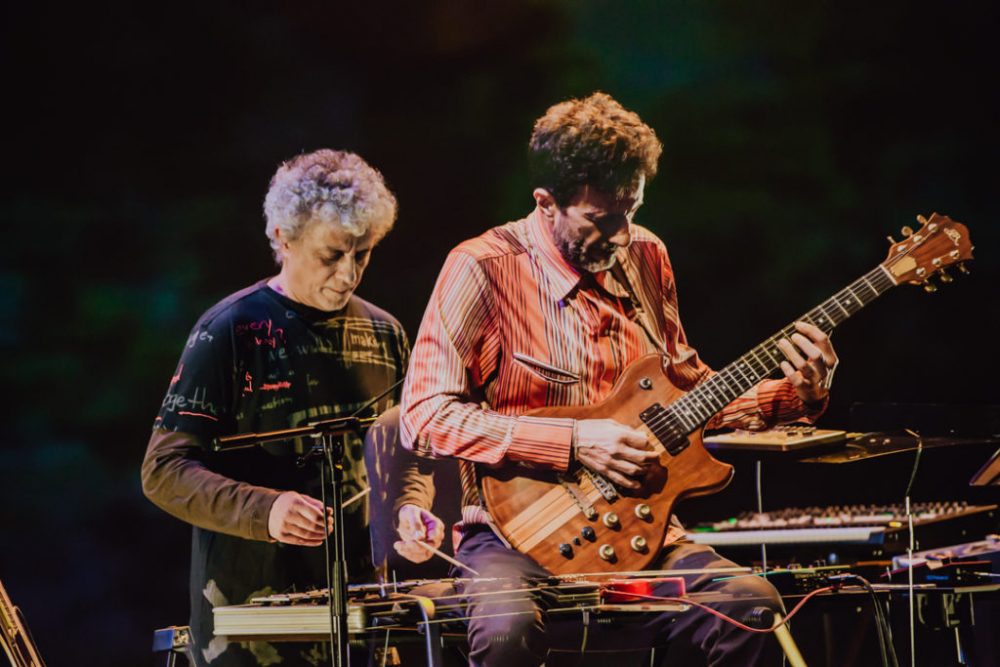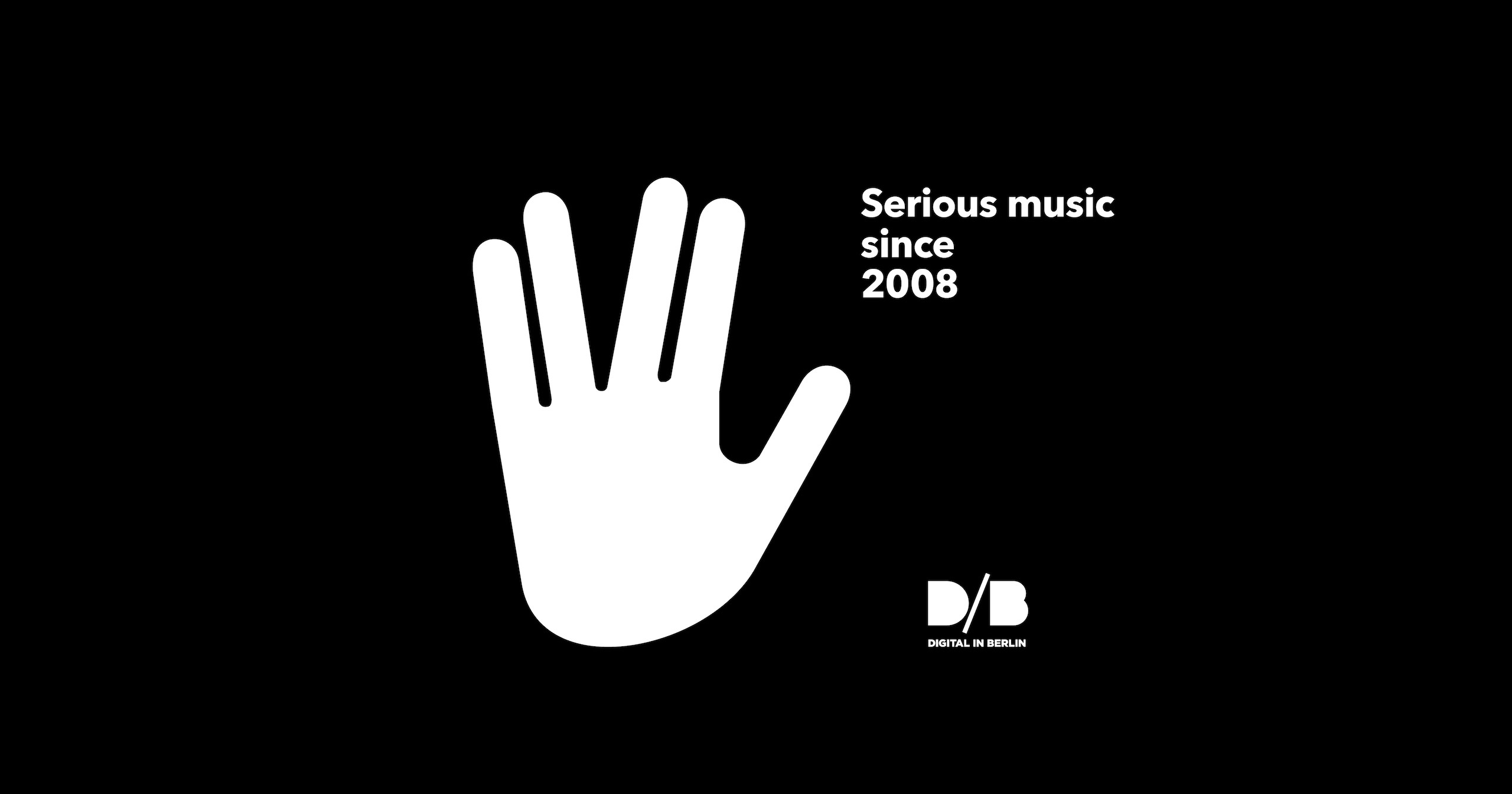Vítor Rua (Telectu) is one of the key figures of Portuguese creative music, with a career covering a multitude of idioms and styles, from rock (he was the founder of the very popular band GNR) to minimalism, concrete music, electronic music, mimetic jazz, folk, punk, thrash metal, country music, and to free improvisation (with Telectu, his duo with pianist and musicologist Jorge Lima Barreto, sometimes with contributors like Sunny Murray, Gerry Hemingway, Han Bennink, Paul Lytton, Barry Altschul, Gunter Sommer, Chris Cutler, Eddie Prevóst, Louis Sclavis, Jac Berrocal, Carlos ‘Zíngaro’ and Elliott Sharp). Since 1987 he focus on classical contemporary composition, either with solo, chamber and orchestral formats (and having John Tilbury, Giancarlo Schiaffini, Daniel Kientzy, Peter Rundel, Christian Brancusi, Remix Ensemble, among others, as interpreters) or messing rather humorously with the opera tradition (he wrote already five operas). This new activity didn’t make him forget his instrument of choice, the guitar, and neither did it collide much with his thinking of an ensemble as a guitar band. And yes, it sounds like Vítor Rua is making accounts with his own life. It’s that important, that urgent, that significative.
FACTS:
1: Languidly, the spaceship TELECTU kissed the planet’s surface.
The gold speckled river was like a thousand stars – a firmament of branches: solar winds agitated the fulgent ringlets of water; silvery comets whispered amidst the velvety leaves. Each scintillation resonated with a sound intagliated with the radar of the mind. Far away, the fog of Betelgeuse was almost silent; Aldebaran, closer and more intense showed sparkling clusters; phosphorescent Alpha Centauri yielded fantastic noise, and delightful radiophonic energy boomed from the loom of Cassiopaea as pale lightning stippled fluid Orion with continuous, stridulous and percussive sound. The rustling river heard on the curve of the Via Lactea ploughed through atonal vegetation – a Magellanic nebulosa of the tree-tops. A burst of a glaring supernova was followed by an empty silence, blinding… and afterwards, glissandi and a sudden agitation of audiovisual leaves, heavily pregnant with sap. An array of sounds was heard, between infra and ultra resplendescent rays. Variable, informational sound impulses; sibilant strings. In textural perspective, one corollary – Tau Ceti – would nudge, eclipse-like, the petals of Andromeda; an anticipation of the microacoustical explosion of a planetoid lodged within a seed. The yellow hang-gliding fall of a meteor floated down from a dissonant treetop as it touched the soil – raising sideral dust. The concrete and the Imaginary; and on – until the sight became insane with immense sound… the Sun, that same morning, inebriated with audioextravagant radiation…and at the ends of the Galaxy, mixed with the sounds of Nature, the archaic melody of a vanishing trombone…
‘Music!’ – Homo Sapiens was not alone in the Universe…
2: Analytical-philosophical thoughts on a new way of improvising:
There are several reasons why we differentiate one style from another. One may be characterised by its specific idiosyncratic rhythms, another by its use of pentatonic scales; in one, complex structures might underwrite a style – as with serialism; or radical simplicity – as with minimalism, but whatever leads us to identify a style, one thing remains common to them all: they comprise a language – a collection of idiosyncrasies that makes them unique.
We know how to differentiate French from English, Italian from Spanish or Chinese from Japanese and, similarly, in music we can distinguish punk from rap, rock from jazz, serialism from minimalism or hip hop from Musique Concrete – because they are all identified as different languages.
In the late 1960s, a music appeared that claimed to be free of any kind of language. This was called total improvisation or free improvisation and what – supposedly – defined it was the impossibility of relating it to any recognizable musical style. To name and characterize this, the guitarist and improviser Derek Bailey wrote in his book, Improvisation, that this new form of improvisation was ‘non-idiomatic’. Even if this statement were true, it has to be noted that as soon as the style had been characterised as non-idiomatic – it became a style, whose language was non-idiomatic: a non-idiomatic language, but still a language.
But – helas! – what Derek Bailey wrote in his book was not true – there were at least two musical styles that underwrote and inspired total improvisation: what was called contemporary music – the current extrapolation from Western classical music – and what was called free jazz – the current extrapolation from a particular strand of American popular music. To take two of the most paradigmatic groups in this new musical category: A.M.M. and M.E.V., we find a mixture of contemporary composers: Alvin Curran, Richard Teitelbaum and Fredrick Rezewski (in MEV); Cornelius Cardew and Christopher Hobbs (in AMM) – alongside jazz musicians such as Eddie Prevóst, Keith Rowe and Lou Gare. Of the new generation of solo improvisers too some, like Michel Portal, Heinz Holliger and Vinko Globokar were composers, while others, like Alex von Schlippenbach, Evan Parker or Derek Bailey were jazz musicians. In fact what all these musicians rediscovered was to compose in real time.
These musicians all explored extended techniques – unusual ways of treating conventional instruments: preparing pianos or guitars, rediscovering folk or peripheral instrumental techniques such as circular breathing for wind instruments, or over-blowing, or singing while playing; in the strings it might be using the bow on the wood, exaggerating the pressure of the bow on the strings, accentuating the harmonics – and so on; in fact, these experimental approaches became standard for all instruments, mirroring exactly developments in the world of contemporary composition. At the same time, the intensity, volume, speed, energy – and expressive virtuosity of free jazz became a commonplace in the language of total improvisation.
So Total Improvisation was not, in fact, non-idiomatic – and 50 years later you only have to listen to it for a few seconds to recognize it immediately; it’s a style, like blues or reggae – and if we recognize it that way, that’s because it’s a language.
Once I understood that there was no such thing as non-idiomatic improvisation, I decided to look for a different way to improvise, and I arrived at a new style of music-making that I called ‘Meta-improvisation’ – which is to say, improvisation performed in variegated musical styles structured both horizontally and vertically into compositions – which I call compositions on meta-idiomatic improvisations. In fact, this idea came naturally to me out of my musical past: in the course of my life I have worked in a wide variety of musical styles, from blues to folk, punk to rock, concrete and jazz to minimalism.
The process I employed was to record improvisations (in specific musical styles) creating meta-stylistic layers – to which I subsequently applied compositional attention. The results of this work (my research stretched over more than ten years) was finally accomplished through many hours of recording, mixing and mastering, over a further two years.
During this time, I created a Triptych – in the form of three double CDs: ‘Do androids dream of electric guitars?’; ‘When Better isn’t Quite Good Enough’ and ‘Turtles on a Sea of Roses’ – in which I explored my new way of composing. On CD 1, the songs are performed only on the guitar; on CD 2 the same themes are played by an ensemble consisting of drums, bass, piano, guitar, clarinet and trumpet.
Composing over meta-idiomatic improvisations its something that I want to see developed in several media: from simple instrumental solo to opera and Pop!
3: I want to live in Berlin!
QUESTIONS:
1. What is the biggest inspiration for your music?
Karlheinz Stockhausen (Mikrophonie I & Sirius).
2. How and when did you get into making music?
I began playing guitar at 9 years old and making money with music at 11 years old.
3. What are 5 of your favourite albums of all time?
The Beatles – Sgt. Pepper’s Lonely Hearts Club Band
Tony Conrad & Faust – Outside the Dream Syndicate
The Rolling Stones – Their Satanic Majesties Request
Stockhausen – Sirius
Pink Floyd – A Nice Pair
4. What do you associate with Berlin?
Architecture and art.
5. What’s your favourite place in your town?
My studio.
6. If there was no music in the world, what would you do instead?
I don’t know… maybe I’d play football…
7. What was the last record/music you bought?
Telectu – Off Off – second hand.
8. Who would you most like to collaborate with?
With Helmut Lachenmann.
9. What was your best gig (as performer or spectator)?
When I played at Pompidou Center in 1984 with a performer called Manoel Barbosa, and we played so loud and the lights were so strong that after one hour the organiser entered the stage and finished the concert without our authorisation. It was great!
10. How important is technology to your creative process?
Very. Without my pencil and eraser I cannot write music!
11. Do you have siblings and how do they feel about your career/art?
They are very supportive! One thing: they don’t hear my music!
Telectu will perform at this year’s edition of SEMIBREVE Festival, taking place in Braga from 26th to 28th October 2018 in Braga, Portugal!
Photo © Telectu

